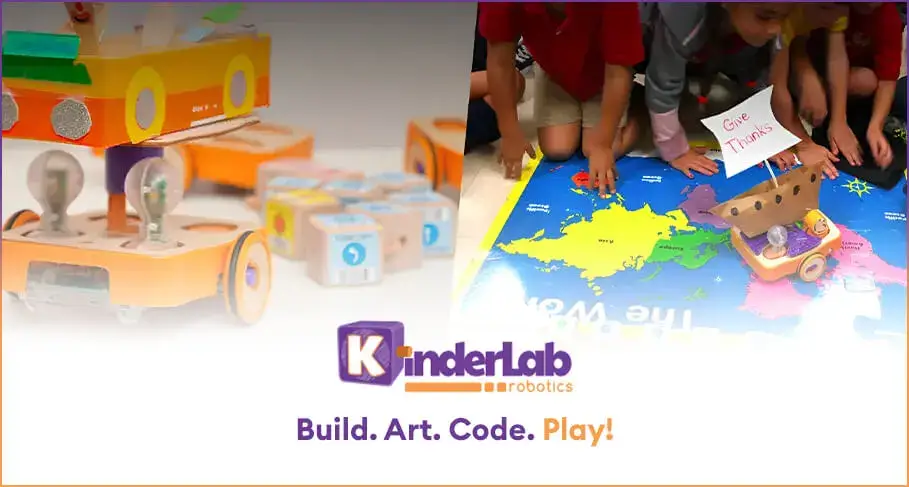KinderLab Robotics, a leader in educational STEAM robotics for grades pre-K–5, has introduced Thinking with KIBO: Introducing Artificial Intelligence (AI) in Early Grades, a free curriculum designed to help students understand how AI tools work and think critically about how these tools can improve lives in their communities.
Each lesson, designed for children in grades 1-3, allows students to explore core notions about AI through activities with the hands-on and screen-free KIBO robot. Thinking with KIBO involves students in grades K-5 on computer science principles and growing artificial intelligence subject standards. The curriculum is appropriate for a 5- to 6-week unit in computer science or technology/media schools, as well as afterschool programmes, enrichment centres, libraries, maker spaces, and other settings.
Speaking about the initiative, the Director of curriculum, training, and product management of KinderLab Robotics, said:
We can make advanced and abstract ideas like AI accessible to young kids when we stick with what works in early childhood: hands-on experience with physical manipulatives and playful opportunities for self-directed knowledge construction. KIBO provides a research-proven method to explore computer science, engineering, and now AI concepts in early childhood STEM education.
Thinking with KIBO is aligned with the draft AI4K12 curriculum guidelines, which explore the “Five Big Ideas in AI”: Sensing, Representation and Reasoning, Learning, Natural Interaction, and Social Impact. These guidelines, a collaboration between AAAI and CSTA, frame AI education as an essential component of K–12 computer science education.
David S. Touretzky, Professor of Carnegie Mellon University and chair of the AI4K12 Steering Committee, added:
Children today are growing up in a world saturated with artificial intelligence technology. It’s never too early to teach them the basics of AI and computing, which is why the AI4K12 Guidelines begin with kindergarten.
Although there are important questions about how AI tools will and should be used in the classroom, KinderLab’s new curriculum instead centres on teaching children how AI works. Featuring four 60-minute lessons and a fifth lesson that can be extended from one to two hours, the core learning objectives of the new curriculum include:
- AI is a tool made by people. Artificial intelligence can sometimes seem like magic, but it is just a tool created by human engineers. This understanding can help demystify AI and, for some students, make it seem less scary.
- AI systems (and robots!) make decisions based on input and rules. Both robots and AI rely on what engineers call the “sense – think – act” cycle. The systems take information, decide what to do based on rules, and then take action. Humans design the sensors, the rules, and the actions. An AI system’s rules can be very complicated, and the rules can even change over time through machine learning, but they are still rules.
- AI doesn’t think like people do, and it’s not alive. Although we use the words “artificial intelligence,” the intelligence of these systems is different from human intelligence. AI systems don’t really “think” like we do. They can’t choose what to do outside of their rules or develop new ideas and aren’t aware of themselves like people.
- AI can help people solve complex problems. Even though AI doesn’t think, AI is still an amazing tool for helping us think by processing far more information than people can. Exploring the uses of these systems will help students understand how AI can be used responsibly, and it might even inspire them to work on developing AI themselves.
KinderLab Robotics is dedicated to promoting universal STEAM literacy. The company aims to accomplish this by providing young children with research-based robot kits. Robotics in early learning dynamically introduces STEAM principles, piquing the interest of even the youngest learners in Science, Technology, Engineering, Arts, and Math. Dr. Marina Umaschi Bers of Boston College developed KIBO, particularly for teachers. It is now used in over 70 countries and has demonstrated efficacy in helping youngsters in pre-k-5th grade study STEAM—and get excited about it. KinderLab provides a comprehensive set of teaching tools for incorporating STEAM aspects into various curricula, including art, cultural studies, and reading literacy.
